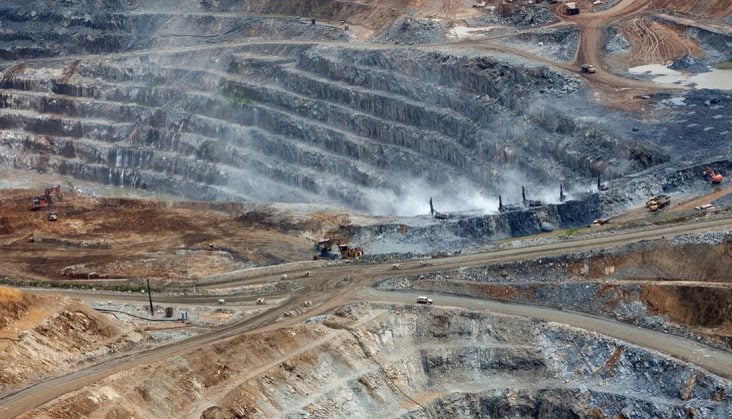An order signed by Michel Kibonge Nyekuma, chief of staff to the minister of mines, on 31 July cancelled the operating rights of 29 companies in DRC, raising concerns over the country’s vital sector and the livelihood of numerous people.
The companies include Cico, Cilu, Comide, Boss Mining, Ruashi Mining, PPC Barnet and Chemaf, all owned by Congolese groups, as well as German, Kazakh, Chinese, Indian, South African and Australian companies.
Although the Congolese government has not formally justified the reasons for this decision, sources close to the matter suggest that it was taken because of the absence of specifications relating to the social and environmental action of companies.
In March 2018, the government enacted a new mining code in which these issues became paramount, with talk of a new amendment to the code to further strengthen these requirements.
For the companies involved, the financial by-product will obviously be significant. “The upfront investment required to launch and support mining operations is often substantial, and is amortised over several years,” says a consultant specialising in the African mining sector.
“Furthermore, in such an uncertain environment, the withdrawal of authorisations can potentially affect relations with investors and bankers, making it difficult to access new financing.”
‘We don’t know how we’re going to live’
The implications of the decree go far beyond this: in DRC, the mining sector is the biggest provider of jobs, both directly and indirectly. The sector accounts for 43% of the national budget, 47% of GDP, 95% of exports and a quarter of jobs.
In the localities affected, the uncertainty surrounding whether or not mining will resume is causing great concern.
Our lives depend on these mining companies
“We’re the ones suffering now. We’ve just been through three difficult months, and our businesses have ground to a halt,” says a Kakanda resident, a town in Lualaba Province, in the former Katanga, one of the country’s richest mineral regions.
“We don’t know what will happen … we don’t know how we’re going to live.”
Another member of his community says: “The consequence of Boss Mining’s suspension is a widespread crisis here. We are in the period when the new school year is starting, and everything is becoming difficult for us.”
The impact on small local businesses and suppliers is also worrying. “This abrupt decision makes us really angry, because our lives depend on the employees of these companies,” says a local trader.
“They come to buy from us and we make a living from it. Today, there is no more money in Kakanda.”
It’s the same story everywhere, from Goma to Kinshasa, via Bukavu and Lubumbashi. “Our lives depend on these mining companies,” says a supplier in Kolwezi, who doesn’t know how much longer he can hold out.
Taking control of key sector
The measure comes at a time when the Congolese government intends to reorganise the mining sector, in particular by regaining control of some of its natural resources.
With one of the richest sub-soils in the world (gold, diamonds, copper, etc.), including minerals that are essential to the energy transition or to the composition of batteries (lithium, cobalt, coltan, etc.), DRC is largely dependent on its deposits.
The government’s desire to regain control seems commendable, but the measure sends a disturbing signal to international investors, who may consequently be reluctant to commit funds in an environment perceived as unstable.
This climate of uncertainty would not only affect the mineral extraction industry, “it could also discourage capital injections into other sectors of the Congolese economy”, says one analyst.
“The real challenge lies in striking a balance between the state’s economic interests, environmental and social standards, and the need to attract investors. The Congolese government must demonstrate clarity and transparency to reassure the various players involved.”
Understand Africa’s tomorrow… today
We believe that Africa is poorly represented, and badly under-estimated. Beyond the vast opportunity manifest in African markets, we highlight people who make a difference; leaders turning the tide, youth driving change, and an indefatigable business community. That is what we believe will change the continent, and that is what we report on. With hard-hitting investigations, innovative analysis and deep dives into countries and sectors, The Africa Report delivers the insight you need.

